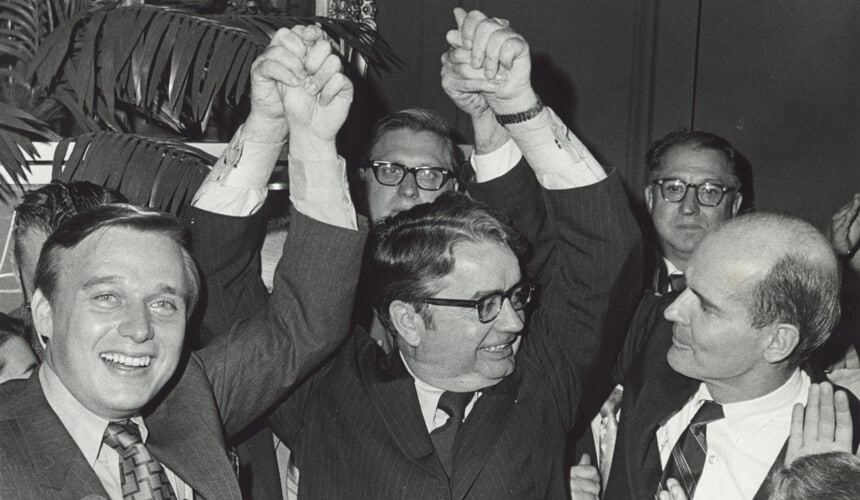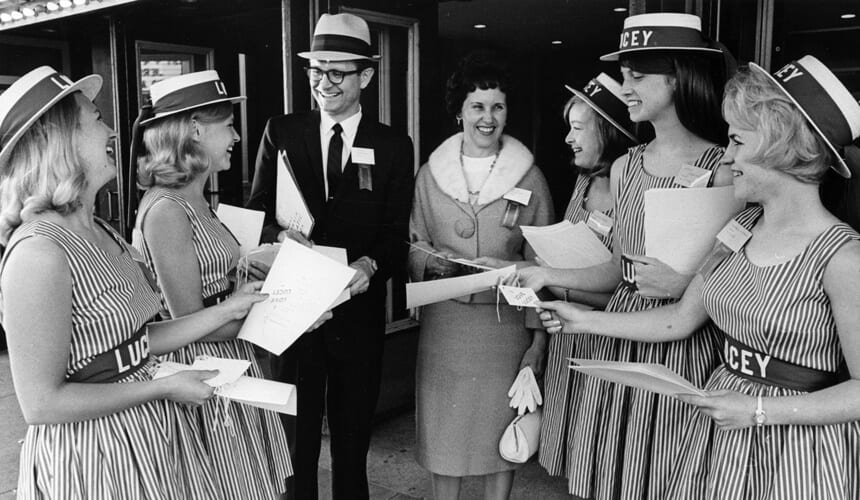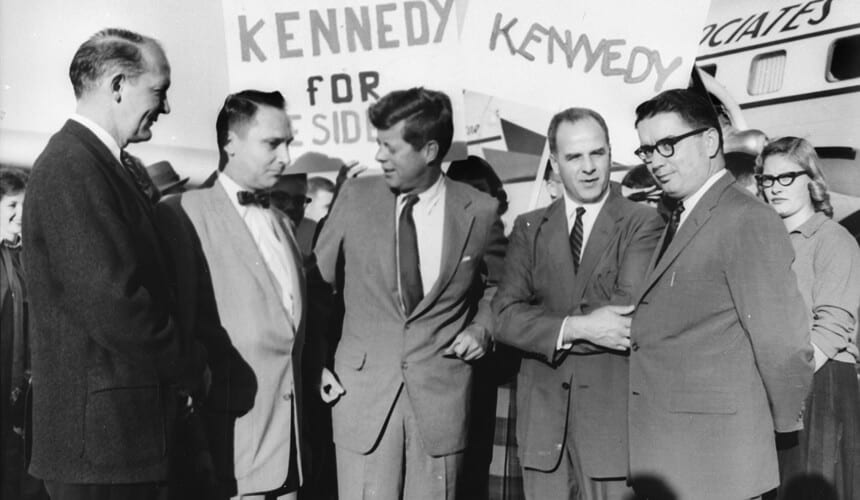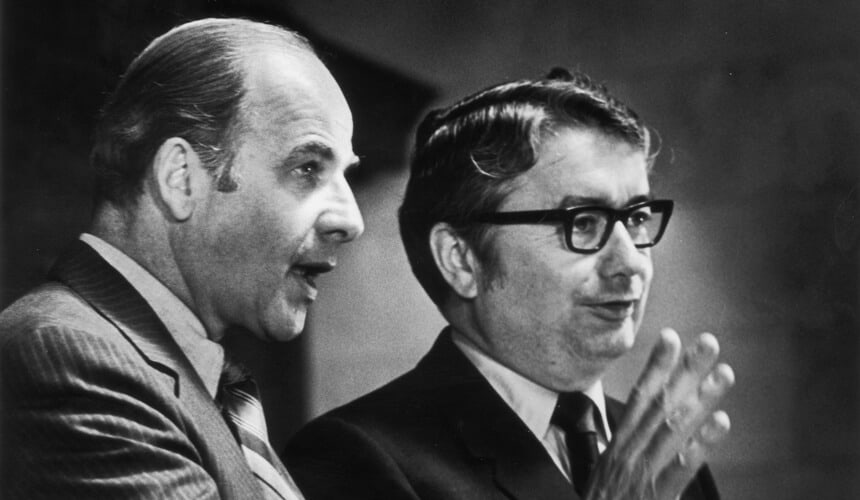Pat Lucey
Governor, Ambassador
Patrick Lucey BA1946 went home to Ferryville, Wisconsin, one weekend during his final semester of college to discover that he’d been elected justice of the peace. A friend had organized a write-in campaign, unbeknownst to Lucey, and he won. The job taught him something about fairness.
Once, a local man was jailed for drunkenness. The next morning, Lucey imposed a $5 fine and $3.50 in court costs. The man’s wife paid the fine.
“I thought to myself, ‘Well now, who did I punish?’ I really punished her,” he said. “She had to go home and milk the cows. She had to gather the eggs. She had to take her egg money and pay the damn fine.”
Lucey rose to build the Wisconsin’s modern Democratic Party. He became friends with John F. Kennedy, served as the state’s 38th governor, became ambassador to Mexico under President Jimmy Carter, and was the 1980 vice presidential pick of independent candidate John Anderson.
Lucey was elected to the state Legislature in 1948, at a time when Republicans — whether progressive followers of Robert La Follette BA1879, LLD1901 or conservatives in the mold of Joseph McCarthy — dominated the state. By 1951, he was the Democratic Party’s organizational director and served as chairman from 1957 to 1963, helping to engineer JFK’s crucial Wisconsin presidential primary victory — which cemented his ties to the Kennedys.
Lucey advised Robert F. Kennedy in his 1968 presidential run. He was checking into Los Angeles’s Ambassador Hotel when RFK was assassinated leaving the ballroom.
Lucey was elected governor in 1971, and re-elected in 1974. One of his signature achievements was the merger of UW–Madison and the state university system.
In 1977, he resigned to become ambassador. But he chafed at Carter’s leadership and criticized him publicly. In the 1980 Democratic primary, Lucey endorsed Senator Ted Kennedy. When Kennedy stumbled, Lucey accepted Anderson’s offer to join a third-party ticket. They won 6.6 percent of the popular vote.
Lucey died in 2014 at age 96, leaving an enduring impression on politics. He insisted it was not because of personal magnetism. “I don’t think I would recognize charisma if it hit me on the head,” he said. “I just sort of plod along and do what needs to be done and hope that it will fall right.”
 69° F
69° F


